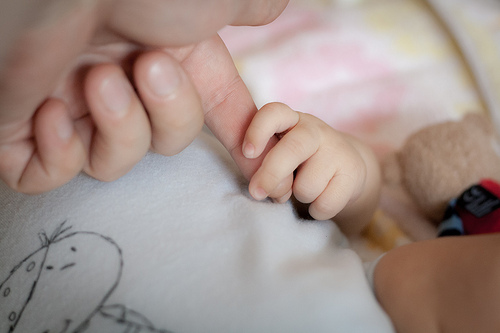
Improper Diagnosis and Treatment of Congenital Heart Defects in Babies
Congenital heart defects are the most common type of birth defect. Although it can be scary for parents to learn their child has a congenital heart defect, children with these conditions usually go on to be happy and healthy. About one in four babies with a congenital heart defect has a “critical” congenital heart defect requiring surgery or other procedures in the first year of life. A well-trained, careful pediatric cardiologist will know what type of testing and monitoring is required for each specific heart defect and when to refer a child for surgical treatment.
Unfortunately, if congenital heart defects are not carefully monitored and appropriately treated, the consequences can be devastating. For example, if a baby’s heart is not correctly getting oxygenated blood to a baby’s brain and vital organs, the baby can suffer from brain injuries or even die. If your child has suffered an injury due to a failure to diagnose or properly treat a congenital heart defect, contact the attorneys at Zevan Murphy Roman to investigate a potential medical malpractice case.
Types of Congenital Heart Defects
Babies with congenital heart defects may have just one, or a combination of heart defects. They can range from mild defects that may resolve themselves over time to defects which require surgery immediately after childbirth or even in utero.
The following are some types of congenital heart defects:
- Atrial Septal Defect
- Atrioventricular Septal Defect
- Coarctation of the Aorta
- Ebstein’s Anomaly
- Hypoplastic Left Heart Syndrome
- Patent Ductus Arteriosus
- Patent Foramen Ovale
- Pulmonary Atresia
- Tetralogy of Fallot
- Total Anomalous Pulmonary Venous Return
- d-Transposition of the Great Arteries
- Tricuspid Atresia
- Truncus Arteriosus
- Ventricular Septal Defect
Signs of Congenital Heart Defects
A baby with a heart defect may have all, some, or none of these typical signs and symptoms. If you report these signs and symptoms to your baby’s doctor, it may require workup for a heart defect. Some signs that your baby may have a heart defect include:
- Heart rhythm abnormalities/ heart murmur
- Difficulty breathing or rapid breathing
- Pale gray or blue skin color (may be around the mouth)
- Sweating
- Swelling in the legs, belly or areas around the eyes
- Poor feeding
- Poor weight gain
Diagnosis and Treatment of Congenital Heart Defects
Congenital heart defects may be diagnosed in utero. A baby’s heart should be assessed in detail at the regular 20-week anatomy ultrasound. At this ultrasound, the doctor typically makes sure all four chambers of the heart are present and the normal cardiac outflow tracts – aorta and pulmonary artery – are present. In some cases, a special fetal heart ultrasound may be ordered to evaluate a fetus’s heart in greater detail.
After a baby is born, doctors may investigate heart abnormalities because of a fetal ultrasound, abnormal heart sound with a stethoscope, a family history, prenatal risk factors, or other reasons. An echocardiogram (echo) of the baby’s heart uses sound waves (ultrasound or Doppler) to assess the speed and direction of blood flow in the heart. An echocardiogram should be able to diagnose any heart defects. However, if an echocardiogram is not performed correctly or not interpreted correctly, a congenital heart defect might be missed.
Babies with known or suspected congenital heart defects must be monitored closely during the neonatal period. However, some heart defects are not identified in utero or in the hospital when the baby is born. In those cases, the responsibility falls on the baby’s pediatrician to take a careful history and physical of the baby at regular visits to ensure the baby is doing well. If the baby presents with signs and symptoms of a congenital heart defect, the pediatrician may have a duty to refer the baby to a cardiologist or order tests to investigate the possibility of a heart defect.
Once a heart defect is diagnosed, depending on its severity, the baby may require surgery immediately, or the baby may be monitored by cardiologists. Cardiologists also have a duty to carefully examine babies with heart defects, and refer them for surgery at the necessary time.
Trust in Zevan Murphy Roman
The attorneys at Zevan Murphy have obtained millions of dollars in compensation for children with undiagnosed or improperly treated congenital heart defects. If you believe you or your child was not treated correctly for a heart defect, the attorneys at Zevan Murphy may be able to help. Contact our medical malpractice attorneys for a free consultation.
